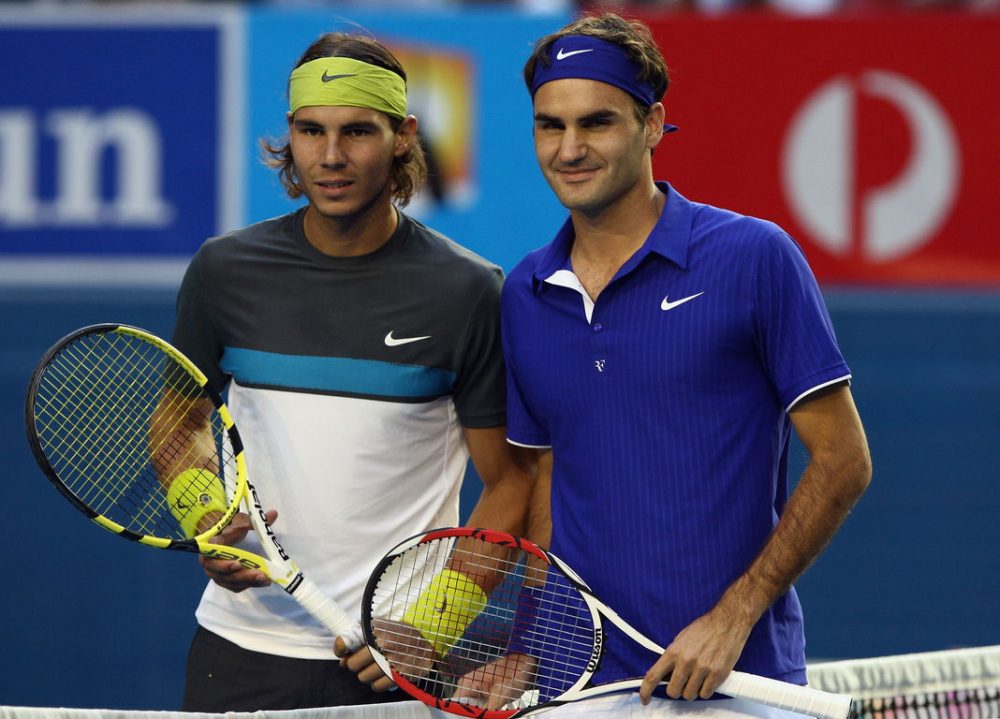by: Ben Stevens
History. Made.
Ever since bursting onto the scene as a 17-year-old by winning the 1999 US Open, Serena Williams has carried with her an air of inevitability. She was LeBron James before there was a LeBron James, possessing talent so obvious, so absolute that it seemed impossible she wouldn’t take the world of sports by storm. With her record-breaking 23rd major singles title on Saturday, it’s clear she has.
Downing sister Venus 6-4, 6-4, 35-year-old Serena looked as close to her apex as she’s ever been. When she’s on it like she was this tournament, she’s unstoppable. It really is that simple.
Now with the number 1 ranking back in her possession, the question now is, is she even close to done? There’s still another two slams to win if she wants to beat Margaret Court’s all-time major record, and really, would you bet against her at this point?
Of course, with the women’s champion crowned, that means the time has come to find a winner on the men’s side. Once again, it’s time for Federer vs Nadal.
Rafael Nadal (ESP) [9] v Roger Federer (SUI) [17] – Not before 7:30 pm local
Forget sports, the rivalry between Federer and Nadal is the greatest since Hannibal and Scipio Africanus. The fact that years after their primes – and five years since their last meeting in a major final – they get to do battle once again is only further proof of their history-altering, logic-defying brilliance. It wasn’t supposed to happen again – at least not here – but now, it has.
In some ways, it’s actually incredible that their meetings can still elicit such excitement. People who haven’t watched a game of this tournament will tune in on Sunday to see them do battle, even when history says there’s no reason to get our hopes up. The harsh truth is that Nadal owns their head-to-head 23-11, faring even better at the slams 9-2, and even more so at the Aussie, where he is unbeaten in three encounters. For as legendary as Federer is, Nadal is simply a matchup nightmare.
Unless you stumbled onto this website by randomly banging on your keyboard, you know why this is the case. The recipe for Nadal’s success is the same now as it was when they met for the first time in 2004 – hit his vicious, looping, heavy-topspin forehand into Federer’s backhand, rinse and repeat. More than against any other single hander it works because Federer has a very traditional swing path on the shot which makes it hard to control and even harder to answer with. He can’t roll over the top of it like a Richard Gasquet or Nicolas Almagro, and he can’t hit through it consistently like a Stan Wawrinka – instead it’s just there, waiting to be exploited. On top of that Nadal’s hands are just so sublime that he can take even the most lethal of Federer’s shots – while entirely out of position – and either pin Federer in place or win the point outright. More than any other player it adds up on Federer’s psyche – Nadal will just not. Stop. Coming.
For those reasons – even though Federer has had a more impressive run to the final – Nadal is the favourite. So what can Federer do to turn the tide? First, he has to serve lights out – it’s not a guarantor of success, but per tennis abstract, he’s had an ace percentage above 10% in nine of his eleven victories, with the two others coming on a much slower Miami hardcourt and the Hamburg clay in 2005 and ’07 respectively. Second is something Dimitrov couldn’t do as the match wore on, which was keep the points short. Easier said than done, but the longer a rally with Nadal goes, it’s just as likely a shot will break down as it is the Spaniard starts dictating angles, in turn allowing him to finish with a characteristic forehand sledgehammer. In this respect, the down-the-line backhand will be key, as will net approaches, which have to be both ambitious and clinical – particularly on the return. Federer certainly can’t count on wearing down Nadal after his epic semifinal (if there’s one thing Nadal won’t be, it’s tired) so he might as well treat it like another match at Wimbledon or indoors, and rush him off the court. He’s entirely capable of doing it, but here? In this match? Against this opponent? We can only wait and see.
Whoever wins, it will be a career defining moment. Federer for being able to turn the tables nearly ten years after he last beat Nadal in a major final, and a potentially perfect walk-off opportunity. Nadal for – like Federer at Wimbledon 2012 – ending the longest drought of his career, while subsequently thumbing his own nose to father time and reopening the GOAT debate once more. Either way it will be a remarkable occasion, and a worthy finish to a truly remarkable tournament.





















